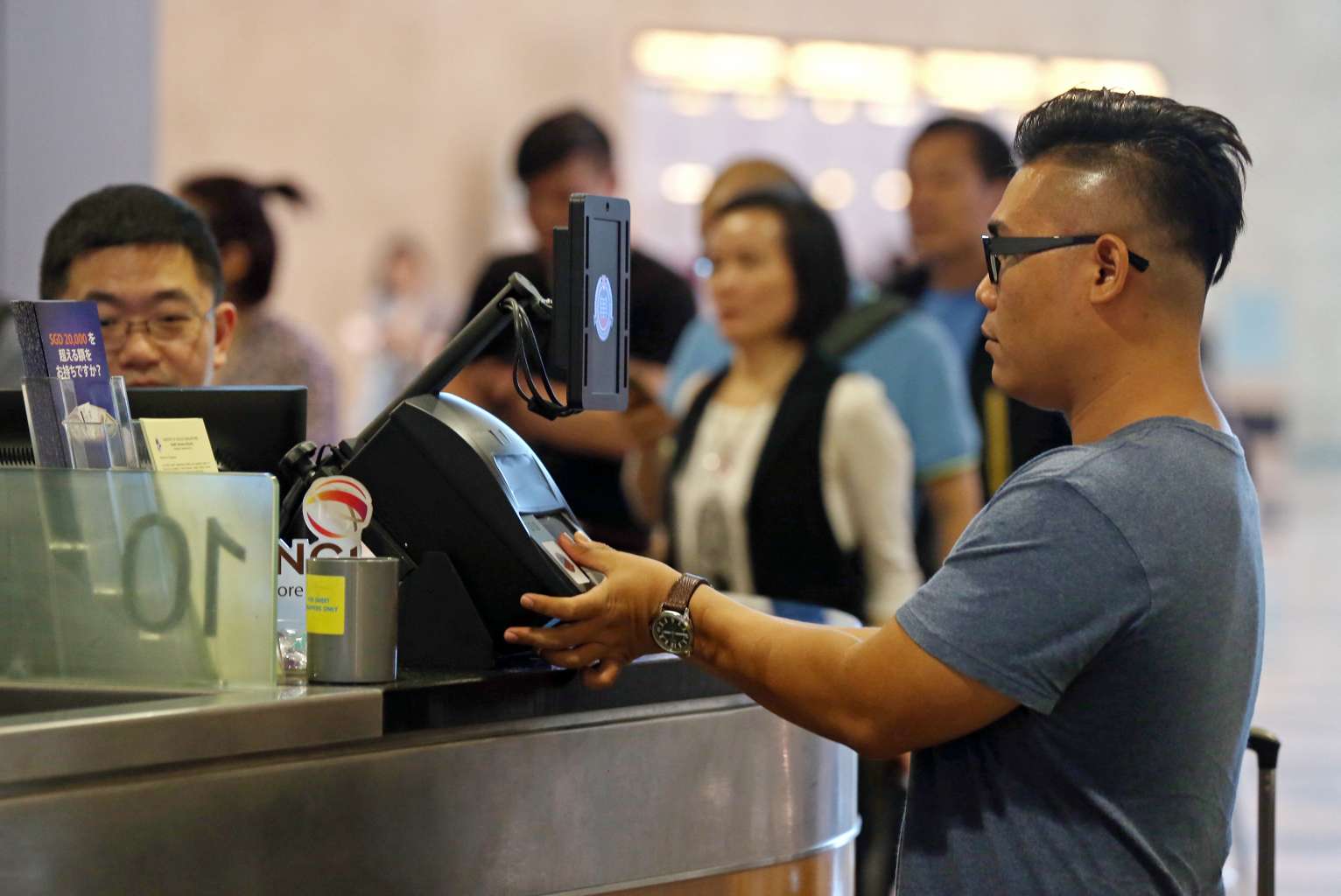Fingerprint-scanning system at Singapore's checkpoints identifies immigration offenders
Sign up now: Get ST's newsletters delivered to your inbox

Tourists and visitors undergoing the Bioscreen checks at the arrival hall in Changi Airport Terminal 3, on May 27, 2016.
ST PHOTO: SEAH KWANG PENG
SINGAPORE - A recently implemented fingerprint-scanning system has in the last month led to some travellers trying to enter Singapore using false identities to be turned away.
This comes even as the system, called Bioscreen was implemented on April 20 at Singapore's land and sea checkpoints, and at Changi Airport on April 27.
The Immigration and Checkpoints Authority (ICA) revealed this at a briefing on Friday (May 27).
The authority added that it is also pushing ahead with the implementation of Bioscreen and it aims to expand the system to counters with immigration officers at the airport's Terminals 1 to 3.
This means that every passenger passing through these counters will have their finger prints scanned.
Bioscreen's implementation will not affect passengers passing through automated clearance counters, which already scan travellers' fingerprints.
Between April 20 and May 19 2016, more than half a million travellers were cleared through Bioscreen.
With Bioscreen, immigration clearance might take slightly longer, according to the ICA. Based on observations of several travellers using Bioscreen, The Straits Times estimated that it could take 10 to 15 seconds to have their fingerprints scanned.
To ensure that the fingerprint capturing process is smooth, ICA officers will guide travellers at the Bioscreen devices . The authority said that it would also monitor the implementation of Bioscreen closely, and fine tune and adjust its plans where necessary.


